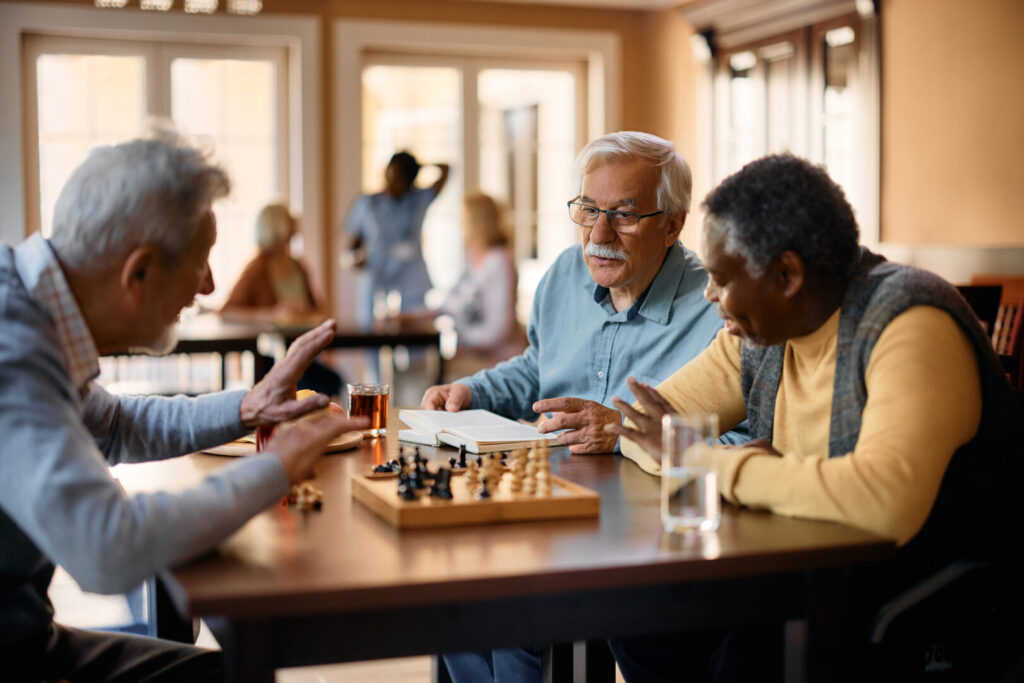In today's fast-paced society, where life's responsibilities can sometimes overshadow its joys, it's especially crucial to prioritize wellness—most importantly for the cherished seniors among us. Wellness isn't just a buzzword; it's a lifeline, a multidimensional approach that goes beyond mere health metrics to envelop emotional richness, mental clarity, and a vibrant social life. It's not just about extending years but about adding life to those years, making them as golden as they should be.
- Physical Wellness for Seniors
- Emotional and Mental Wellness for Seniors
- Social Wellness and Connections for Seniors
- Preventive Health for Seniors
Physical Wellness for Seniors
Physical wellness is essential for seniors, as it supports their overall health and well-being. Regular exercise, proper nutrition, and hydration are key components of maintaining physical strength, balance, cardiovascular health, and mental well-being.
Benefits of regular exercise for seniors
- Strength: Seniors should engage in regular strength training exercises like weightlifting or resistance bands to maintain and build muscle strength, improving balance and stability.
- Balance: Incorporating balance-focused exercises like yoga or tai chi helps improve stability, coordination, body awareness, and muscle control, reducing the risk of falls.
- Cardiovascular health: Regular aerobic exercises such as brisk walking, swimming, or cycling strengthen the heart and lungs, improve circulation, lower the risk of cardiovascular conditions, and increase endurance and stamina.
Importance of proper nutrition and hydration
Exercise is important, but nutrition and hydration are equally vital for physical well-being. Seniors should focus on:
- Balanced diet: Consume fruits, vegetables, whole grains, lean proteins, and healthy fats. Opt for nutrient-dense foods and limit processed items, sugary snacks, and beverages.
- Adequate hydration: Stay hydrated throughout the day, even if you don't feel thirsty. Monitor fluid intake, especially in hot weather or during physical activity.
- Portion control: Mindful portion sizes help maintain a healthy weight. As metabolism slows with age, balance calorie intake with energy expenditure. Eating smaller, frequent meals can aid appetite and digestion.
Emotional and Mental Wellness for Seniors
Emotional and mental wellness are vital for seniors' overall well-being as they face the challenges of aging. Poor emotional health can lead to loneliness and a lower quality of life.
Emotional well-being is crucial for seniors' cognitive functions, as good emotional health enhances memory and decision-making, whereas constant stress and negativity impair cognitive abilities and raise dementia risk.
Strategies for managing stress, anxiety, and depression in older adults
- Regular exercise: Engage in 30 minutes of moderate exercise like walking or swimming most days to manage stress and boost mood through endorphin release.
- Mindfulness: Practice meditation or deep breathing for stress relief, emotional resilience, and clarity.
- Seek support: Talk to friends, join support groups, or consult a therapist for mental health guidance and support.
- Hobbies: Pursue enjoyable activities such as painting or reading for emotional well-being, fulfillment, and joy.
Intellectual stimulation and lifelong learning for seniors
Maintaining cognitive health and engaging in intellectual stimulation is essential for seniors to lead fulfilling and meaningful lives. As we age, it becomes even more crucial to prioritize brain health and actively seek out activities that challenge and stimulate the mind. In this article, we will emphasize the importance of cognitive health and intellectual stimulation in seniors. We will discuss various activities and hobbies that promote brain health, and we will encourage seniors to explore educational resources and engage in stimulating conversations.
Activities and hobbies that promote brain health
- Brain games: Engage in puzzles or brain training apps to enhance cognition and problem-solving skills.
- Reading: Stimulate the mind by reading books, and joining book clubs for social engagement.
- Learning new skills: Take up instruments, languages, or painting to challenge the brain and improve cognition. Utilize classes or workshops.
- Technology: Use online platforms for intellectual enrichment through courses, tutorials, and talks.

Social Wellness and Connections for Seniors
Social connections are vital for seniors' well-being. Engaging in activities, building relationships, and staying connected enhance their overall health and quality of life. This article explores the importance of social connections and provides suggestions for fostering and maintaining them.
Significance of social interactions and relationships
- Emotional well-being: Social interactions combat loneliness and promote happiness and life satisfaction through support and companionship.
- Mental stimulation: Social activities and conversations provide intellectual engagement, improving cognitive function.
- Physical health: Robust social connections encourage healthier lifestyles and reduce the risk of chronic diseases, benefiting overall health.
Suggestions for fostering social connections
- Volunteer in the community: Seniors can contribute to the community and interact with others by choosing volunteer opportunities aligned with their interests or skills.
- Participate in community activities: Engage in local events and activities to meet new people and foster social connections.
- Embrace technology: Seniors can use social media, video chat, or online forums to connect with loved ones and participate in online communities.
- Family support: Maintain close relationships with family for seniors' well-being. Regular communication and shared activities provide emotional comfort and assistance when needed.
- Meaningful connections: Nurture relationships with loved ones for a sense of connection and understanding. Spend quality time, have heartfelt conversations, and show care and appreciation.
- Intergenerational connections: Connect with younger generations for fresh perspectives and learning opportunities. Engage with grandchildren, mentor youth, or join intergenerational programs for meaningful relationships.
Spirituality and Inner Well-being for Seniors
Spirituality and inner peace are essential for seniors' well-being, benefiting their emotional, mental, and physical health.
- Emotional well-being: Spirituality brings emotional comfort and solace, helping seniors understand and cope with life's challenges. Cultivating inner peace through spirituality reduces stress, anxiety, and feelings of isolation, promoting emotional well-being.
- Mental clarity: Spiritual practices enhance mental clarity and foster a sense of calm. Mindfulness and meditation quiet the mind, improve focus, and reduce racing thoughts. This leads to improved cognitive function, mental resilience, and better stress management.
- Connections and community: Spirituality often involves connecting with like-minded individuals. Engaging in spiritual communities, religious services, or group rituals creates a sense of belonging and social support. It combats loneliness and builds a network of supportive individuals.
Suggestions for practicing mindfulness, meditation, and spiritual activities
- Mindfulness: Seniors can practice mindfulness by being fully present at the moment and observing thoughts, feelings, and sensations without judgment. Activities like mindful walking, eating, or breathing exercises promote awareness, reduce stress, and foster inner peace.
- Meditation: Exploring different forms of meditation, such as guided or loving-kindness meditation, promotes relaxation, focus, and self-reflection. Regular meditation sessions enhance self-awareness, and emotional balance, and deepen the connection with one's spiritual self.
- Spiritual activities: Seniors can engage in activities aligned with their beliefs, such as attending religious services, prayer, rituals, reading spiritual texts, or acts of service and compassion. These activities provide purpose, a connection to something greater, and cultivate inner peace.
Creating a Healthy Environment for Seniors
A safe and supportive living environment is vital for seniors' wellness. This article emphasizes the importance of creating such an environment for their physical, emotional, and mental well-being. It provides tips for decluttering, organizing, and creating a comfortable space, as well as explores the benefits of incorporating nature and natural elements into the living environment.
Importance of a safe and supportive living environment
- Physical safety: Ensure a safe living environment for seniors by removing hazards, improving lighting, and installing handrails to prevent falls.
- Emotional well-being: Create a supportive living space that is clean, organized, and reflects seniors' style to reduce stress and enhance their mood and sense of belonging.
- Mental stimulation: Promote cognitive health by maintaining a clutter-free environment and providing opportunities for hobbies, reading, and creative pursuits.
Preventive Health for Seniors
With proactive and preventive strategies, senior adults can enhance their longevity, lead an active lifestyle, and age with grace and dignity. Here is what to focus on:
- Regular check-ups: Seniors need routine medical check-ups to monitor their health, manage conditions, and detect concerns early through assessments and screenings.
- Vaccinations: Seniors should stay updated on recommended vaccines, such as influenza, pneumonia, and shingles, by consulting their healthcare provider.
- Screenings and tests: Regular screenings and tests, including mammograms, colorectal screenings, bone density scans, and vision and hearing tests, help identify potential health issues for timely intervention.
- Medication management: Proper medication management is crucial for seniors. They should follow prescriptions, be aware of side effects, and communicate changes to their healthcare provider, optimizing their treatment regimens.
- Care Assessment:
Wellness Month emphasizes seniors' overall well-being, covering physical, emotional, mental, and social wellness. A holistic approach improves their quality of life. Physical wellness involves exercise, nutrition, and cardiovascular health. Emotional and mental wellness include mindfulness, hobbies, and support. Social connections are crucial in utilizing relationships and technology. Intellectual stimulation supports cognitive health. Creating a safe environment with nature promotes well-being.





